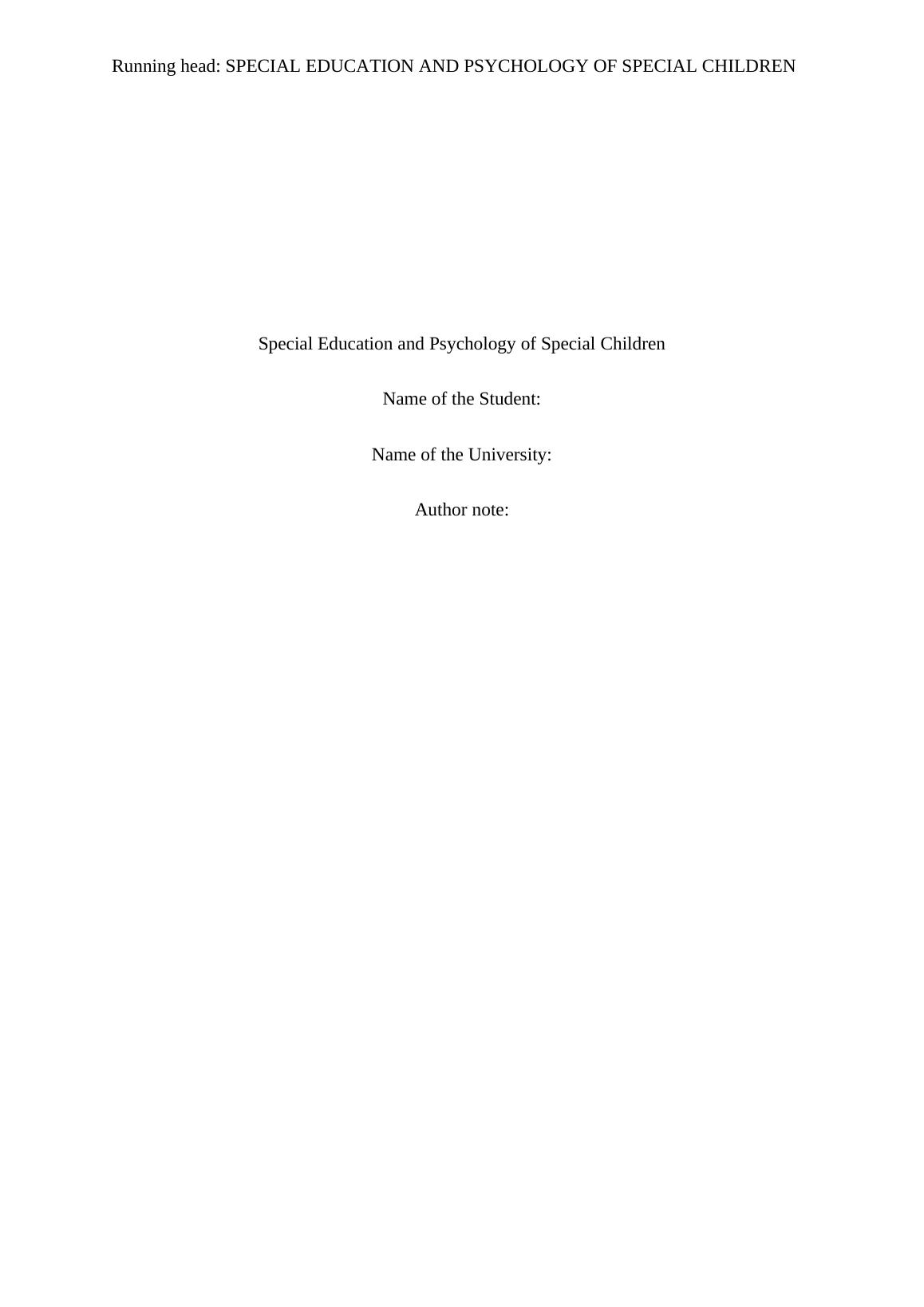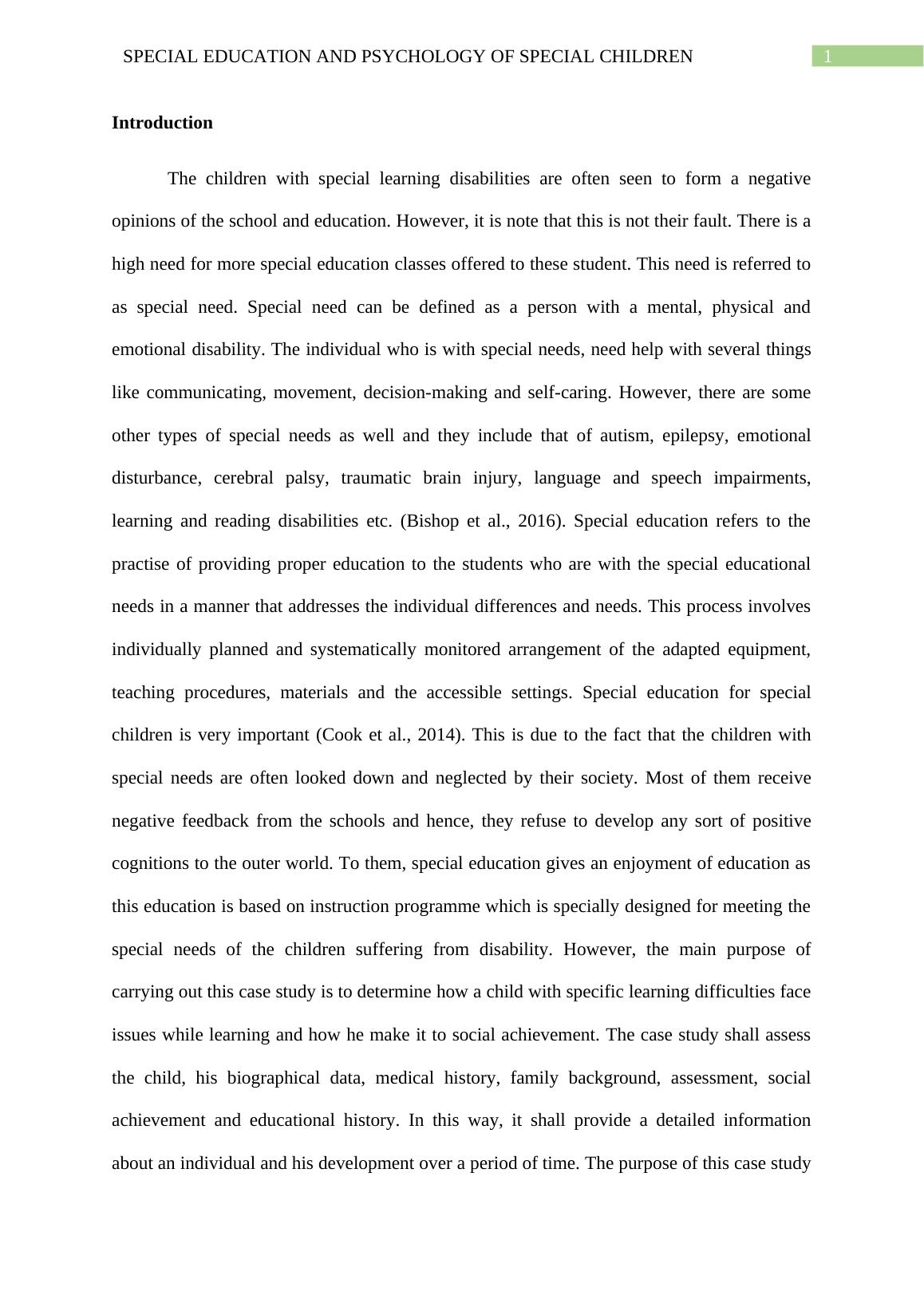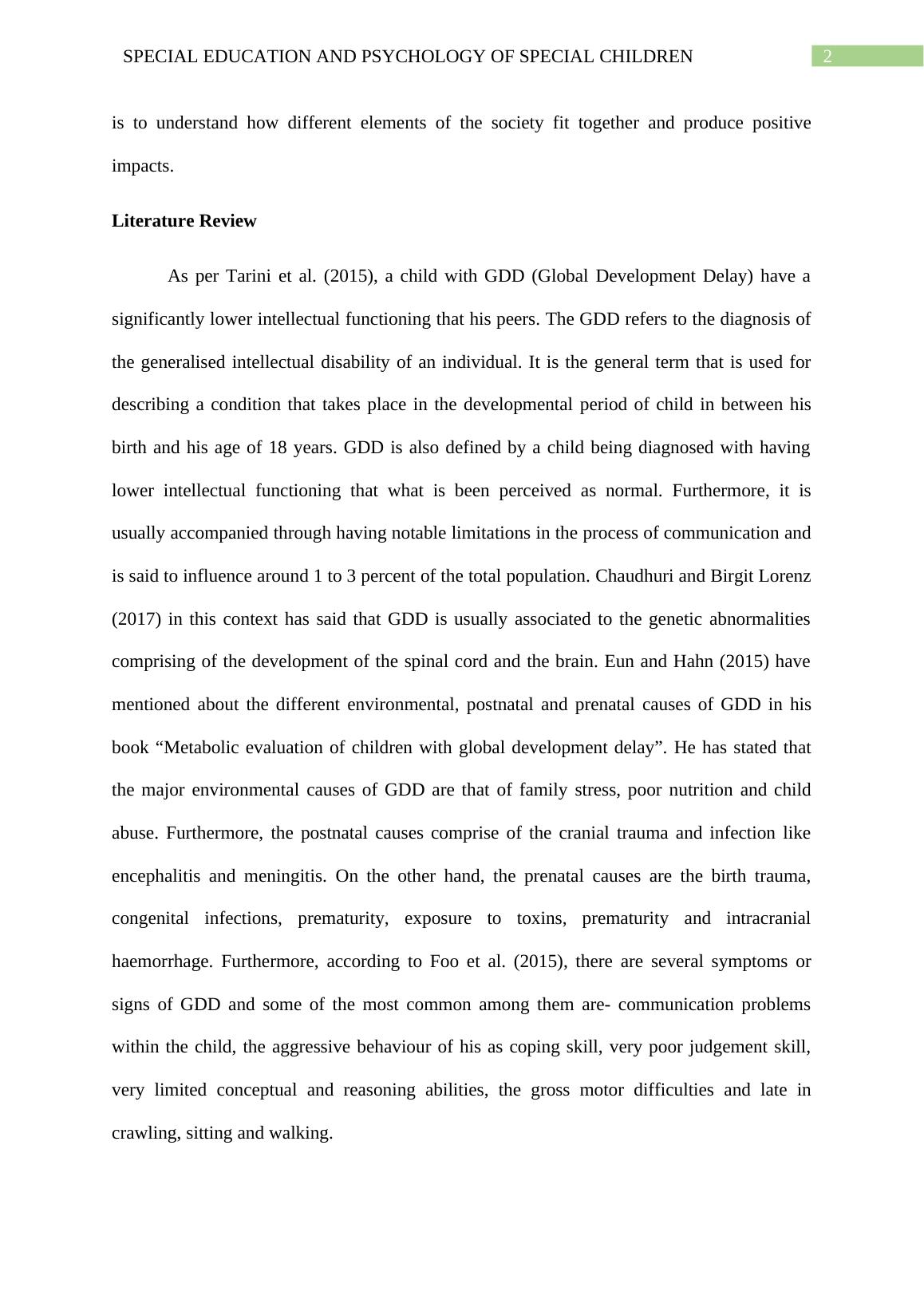Special Education and Psychology of Special Children
6 Pages1672 Words459 Views
Added on 2023-06-10
About This Document
This article discusses the importance of special education for children with special needs. It also covers the diagnosis and treatment of Global Development Delay (GDD) and the benefits of early intervention. The article cites several studies and research papers to support its claims.
Special Education and Psychology of Special Children
Added on 2023-06-10
ShareRelated Documents
End of preview
Want to access all the pages? Upload your documents or become a member.
Inclusion in Special Education: Models, Strategies, and Benefits
|15
|3790
|337
Lack of Social Justice in Special Needs Education
|7
|1709
|481
Special Education Needs in Early Years Settings
|7
|1353
|77
ED5705 - Supporting Inclusion In Childhood Study
|12
|3206
|224
Romanian Schools for Children with Special Needs vs UK Schools with Special Needs
|4
|691
|37
Inclusive Practices in Education for Students with Special Needs
|12
|2617
|230



